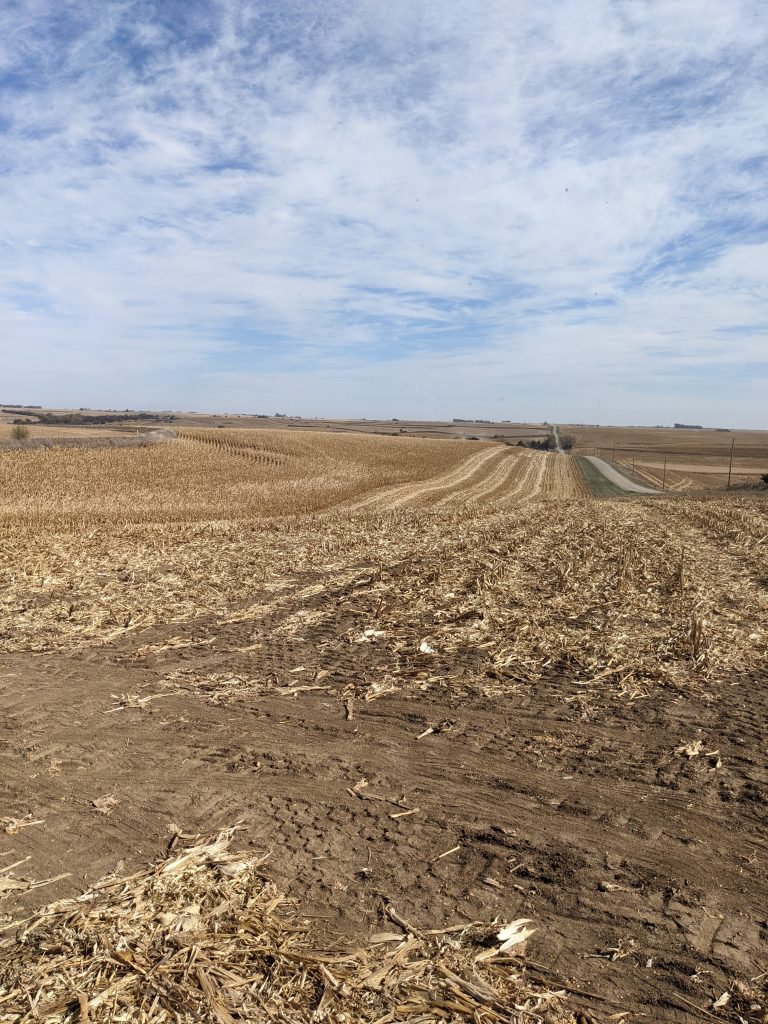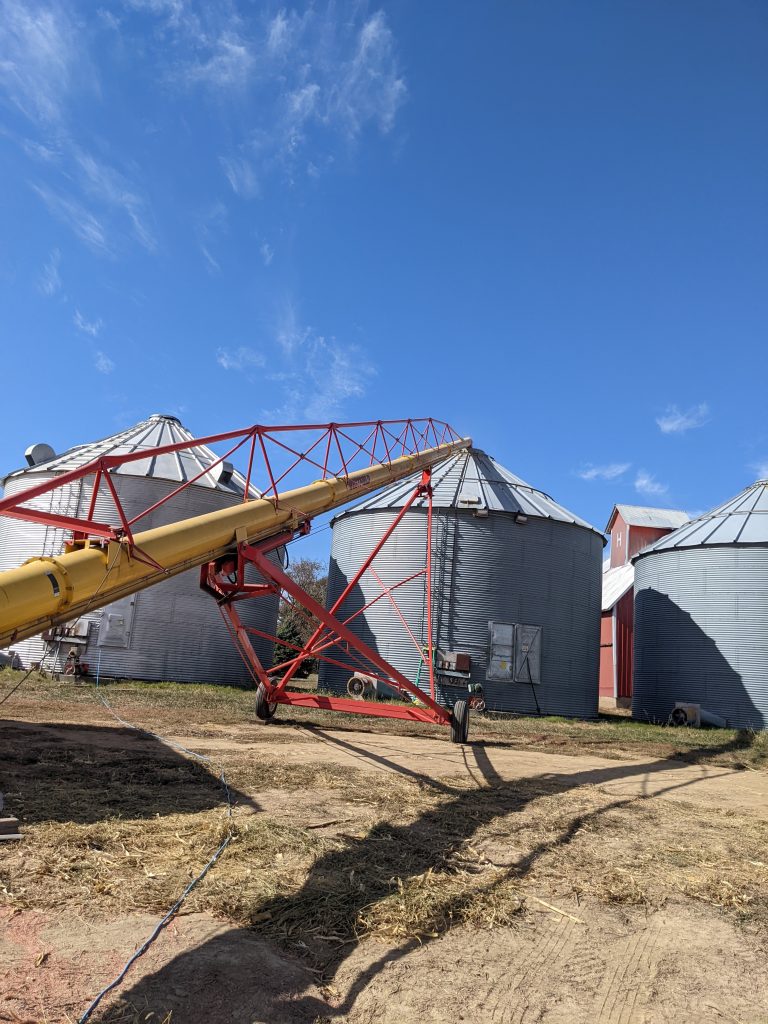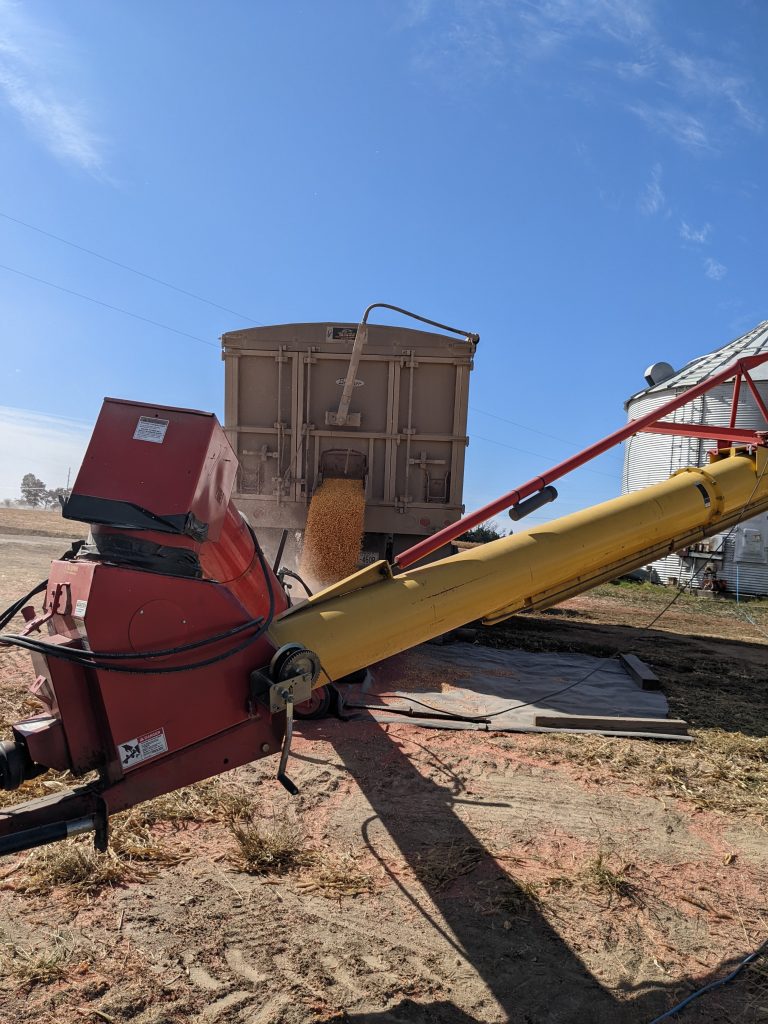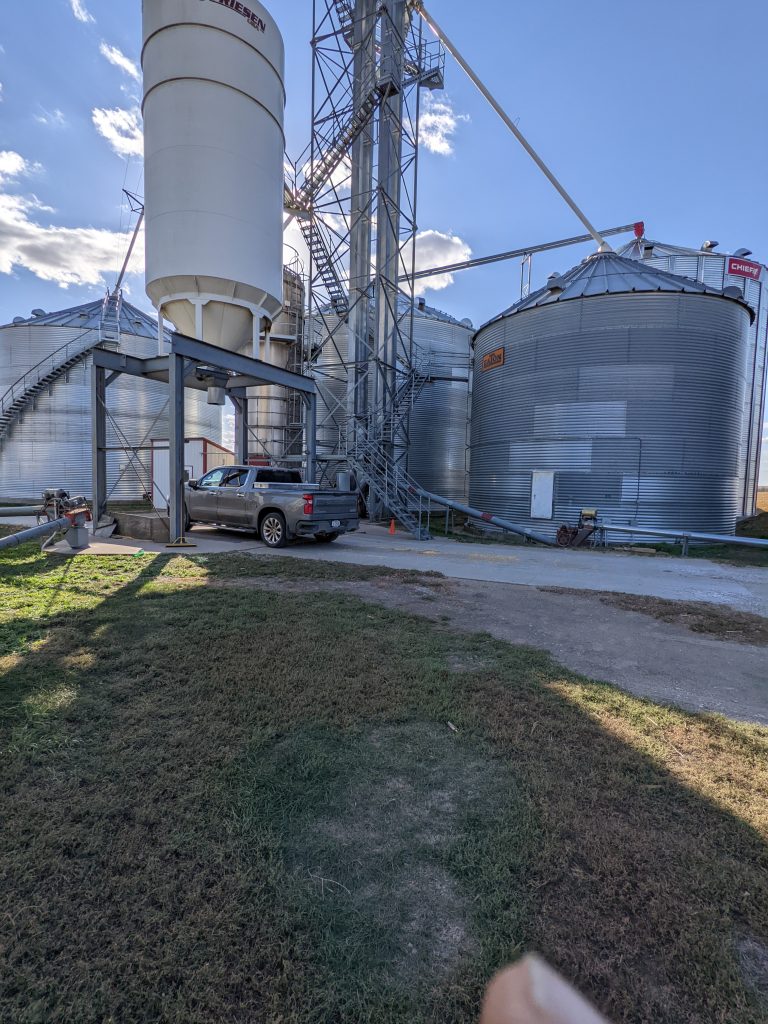The Farm
Stars
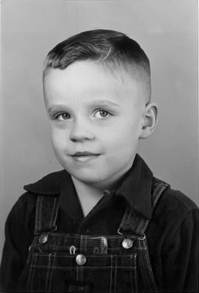
We played games with tin cans. We had no money for balls. My first bike was old, used, and too large for me. But I loved it, nonetheless. It was my bike. Mom made most of our clothes. My family was one of the poorest families in the area. As a farm family, we could can or freeze enough home-grown vegetables to carry us through the harsh Nebraska winters. We had our own livestock and produce that most poor urban dwellers did not have. This made us seem richer than we were. We ate well, but we didn't have much to spare.
I attended a rural one-room schoolhouse from kindergarten through the eighth grade. I had one classmate for most of those years, and 14 other kids made up the other eight grades. Of course, we were all children of farmers. The wooden desks had flip tops so that we could store school supplies and books inside. The teacher’s desk was at the head of the room where we would go to read aloud. A picture of George Washington hung on the wall.
Some people said that we were a tight conservative community. At the time, I didn’t know what community meant, but I later realized that my community consisted primarily of my extended family. The school had no indoor plumbing, but it did have a piano. I don’t recall anyone who knew how to play it. Think of the schoolhouse in Little House on the Prairie, and that would be my schoolhouse. Looking back at my childhood, I see where I began, the people who helped shape me, the experiences that have stuck with me, the feelings these memories evoke, and how interwoven my childhood is with my life as I have lived it.
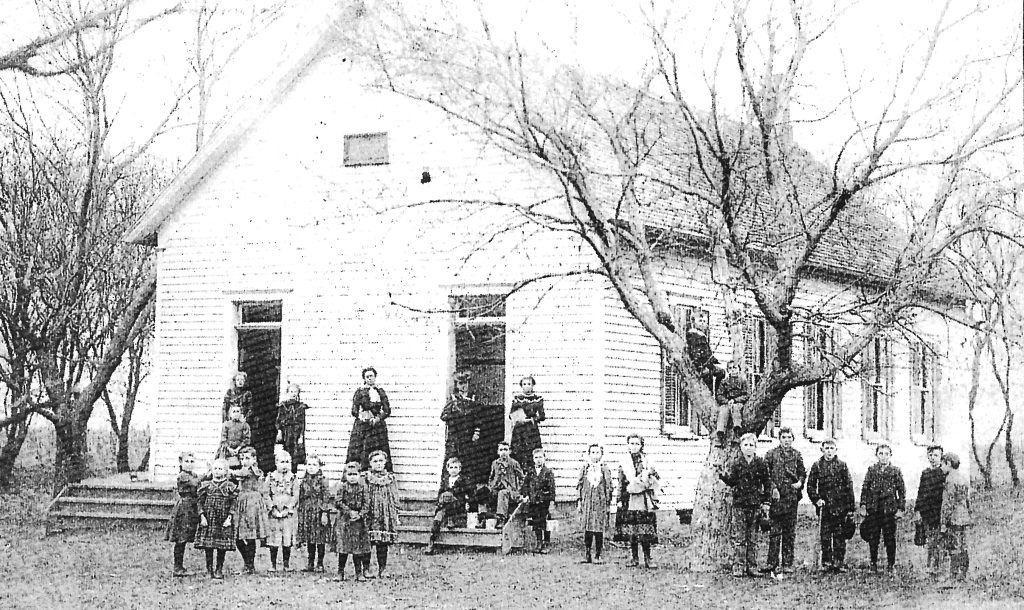
“Mine was a humble beginning. And yet, somehow, my family managed to give me the stars.”
In her acclaimed memoir-turned-movie, The Glass Castle, Jeanette Walls recounts her childhood years of living in poverty. Often, it was embarrassing. But what Walls takes away from her hardships and the struggles of her past is that there are still immeasurable gifts that we receive, even in the unlikeliest of places. In recalling one Christmas when her father was out of work and the family could not afford presents, Walls remembers her dad giving her the gift of the “stars.” He told her, “Years from now, when all the junk they got is broken and long forgotten, you'll still have your stars.” My family was probably not as impoverished as the Walls family, but mine was a humble beginning. And yet, somehow, my family managed to give me the stars.
Growing up on a farm, I worked from an early age. Everyone did a lot of work. It’s not like you had a choice. It was all just a part of your day-to-day life. And, while some kids may have resented having to do chores, I didn’t. I thrived on it. I got to spend a good part of the day with my dad and grandfather, and this meant the world to me. There was my mom, too, of course. I remember my mother, in some ways, got the brunt of it. Certainly, farm life could be a difficult life, and this was especially true for the women. You don’t hear that very often—that the women in these circumstances were the ones who were the backbone that held it all together and kept everything moving along. But I saw it firsthand; I was awed by my mother’s strength and her spirit. It kept me going, even when I was exhausted.
I remember when I was five years old and had to carry buckets of feed from one end of the farm buildings to the other. My arms ached. I was a small child, after all. But what was always stressed to me was the fact that, on a farm, my family was a unit. We helped one another. We lived and worked together. My grandpa and step-grandma resided in our house. We typified that unit in every sense of the word. And this knowledge, and the comfort I took in the true unity of my family, was my security and joy.
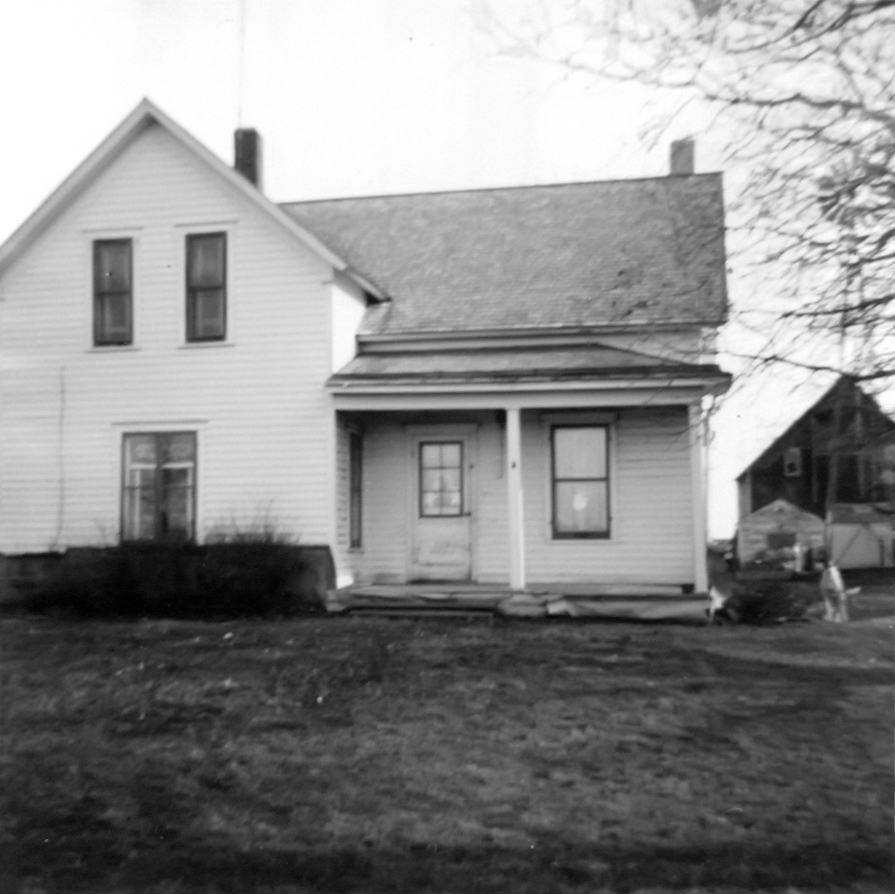
“Growing up where I did, with the people I did, I certainly learned never, ever to take any form of healthcare for granted. And that mindset has come to inform a great deal of my work as a physician.”
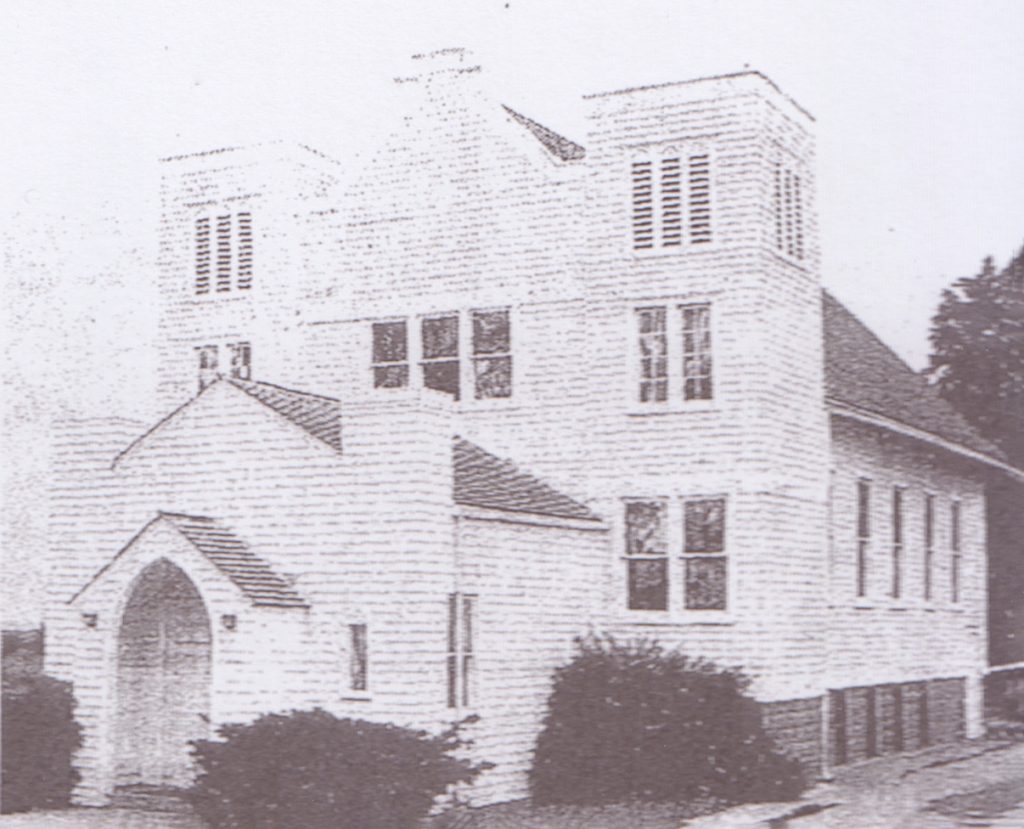
Of course, my family community was also about the individual people who composed our steadfast unit. My mother, the hard worker, was the “academic” one of the family—she’d graduated high school. Of all the adults in my world, she’d been the only one to do so. She was a simple woman in both her dress and demeanor. She wore homemade clothes—housedresses with an apron, most of the time. She was fair-skinned and, in fact, avoided the sun, since she could not sweat. Then there was my dad, of Germanic ancestry, with a large forehead and blue/green eyes. Unlike my mom, he was usually tanned—at least, in the summer months, when he boasted a typical farmer’s tan. The sun seemed to have permanently painted his skin that color. I remember him wearing blue overalls, the ones with the big loop for a hammer and a chest pocket where he always kept a small notebook and pencil. That’s the picture I still have of him. I always worked hard to make my dad proud. In some ways, I think everything I did in my younger years could be linked back to wanting to be that person who would be considered worthy in my father’s eyes. I suppose this is true of many sons.
Dad made it to eighth grade, and then his education stopped. His mother died while he was still very young. My grandfather needed my dad’s help to take care of his two younger brothers and also to tend to the farm. He had no choice; he had to quit school. My grandmother died of quinsy (an abscessed tonsil); obviously, this would never happen today. But, back then, my grandfather just didn’t have the money to get her the medication and care she needed. Hers was a senseless death. Today, we often take for granted accessible healthcare and affordable solutions to sicknesses and conditions that are easily cured. Growing up where I did, with the people I did, I certainly learned never, ever to take any form of healthcare for granted. And that mindset has come to inform a great deal of my work as a physician.
My dad had a quiet strength about him that carried him through his life, serving him well. He never raised his voice other than once or twice, when it really mattered (or, of course, when he was watching football), and he certainly never raised a hand to his children. I think what I most admired was his inherent dignity and the genuine concern he showed for his family or for anyone, really, whom he happened to encounter. He’d always invite people over for coffee or dinner, notwithstanding the fact that we often didn’t have much to share. It didn’t matter to my dad—he’d figure out a way to open his home and hearth, regardless. I attribute this undeniable strength within my father to the fact that he’d been a Marine, and to the things he’d experienced while he was in the service. But then I saw the same calm reassuring demeanor from my grandfather who never served in the military.
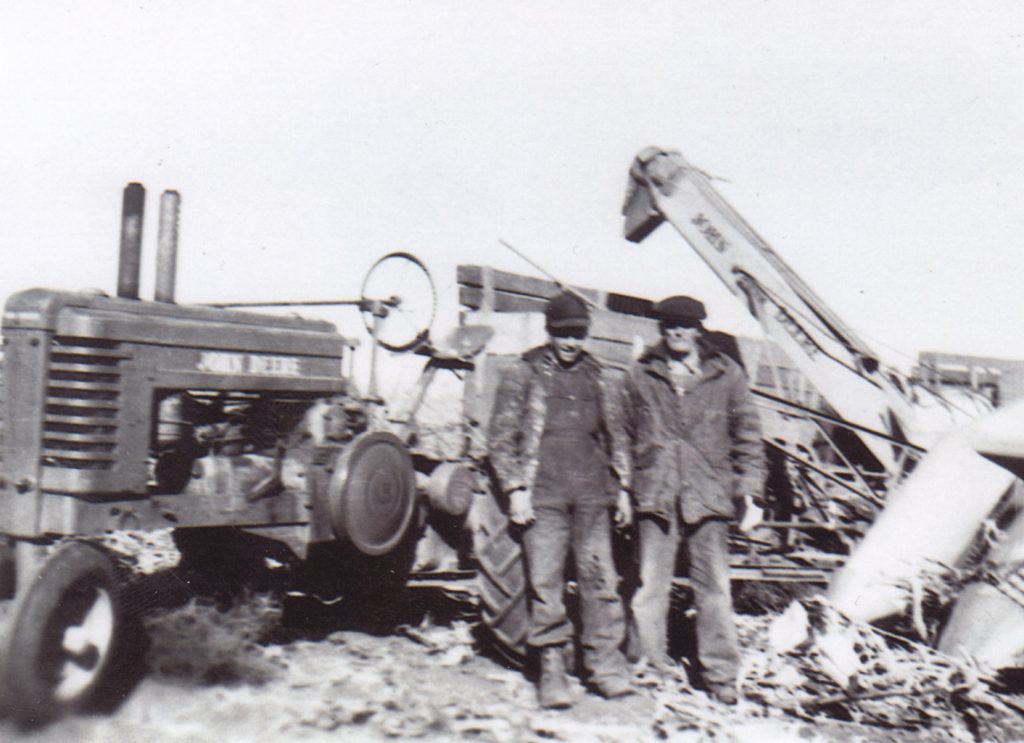
“I proudly recognize that my life started on a small farm in Nebraska with a family who gave me, perhaps, some of my greatest insights into empathy, support, strength, and determination to do what I have to even when it seems I have to climb a mountain to get it done.”
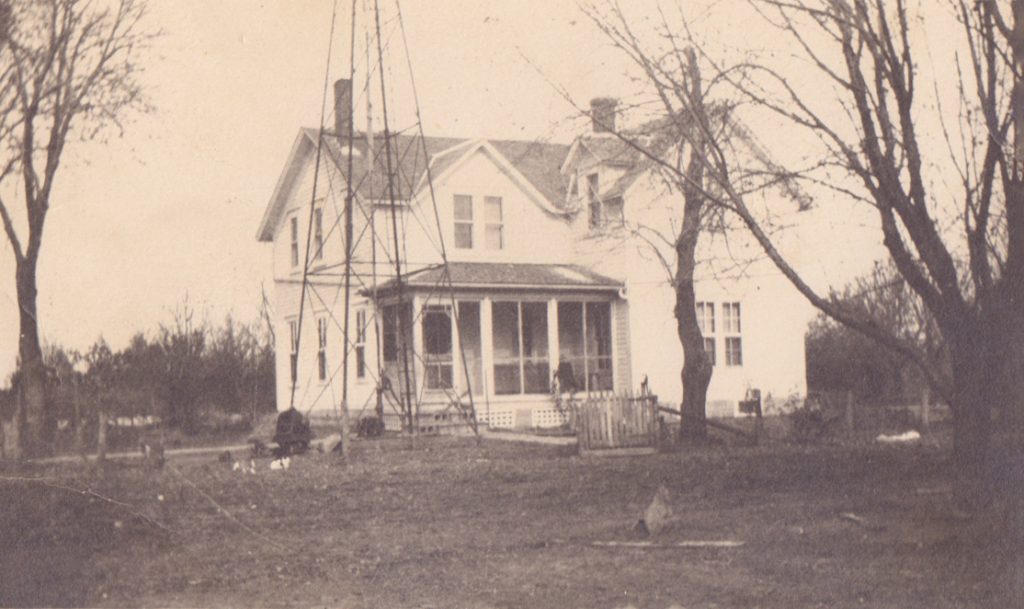
My grandfather has always been my hero. Not because he was some valiant soldier or because he made a lot of money, but because of his fierce dedication to his family. I recall as clearly as if it were yesterday that, when I was four or five, I would stand between his legs riding a tractor while he was doing field work. I felt protected but, more importantly, I felt I was part of him, and he was part of me. My grandfather’s extreme caring, and his empathy and patience, knew no bounds, and it impacted me profoundly.
The experiences of my youth shaped me, but they also gave me key insights that I’ve since translated into work that means something to me. I proudly recognize that my life started on a small farm in Nebraska with a family that gave me, perhaps, some of my greatest insights into empathy, support, strength, and determination to do what I have to even when it seems I have to climb a mountain to get it done. Perhaps the agrarian environment molded personalities that were my models and then became me. Whatever it was, I feel fortunate to have had such a rich and supportive beginning. My roots will always be tied to the farm, and I will always feel stars in my hand.
